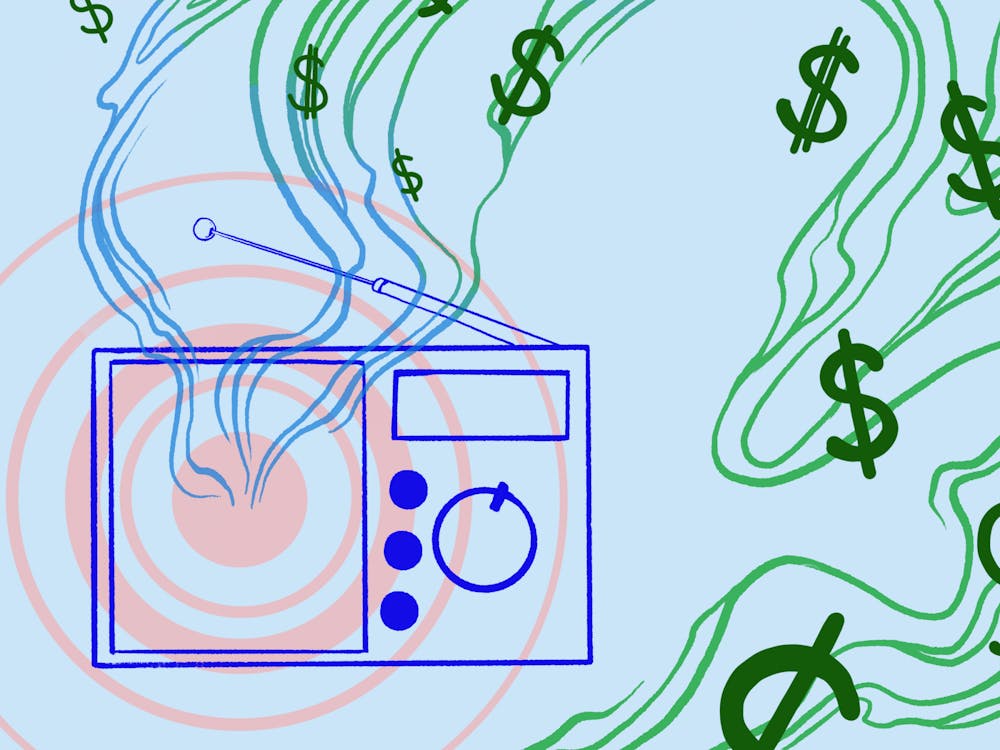On November 4, I kept hearing some odd noise that I couldn’t quite pinpoint. It turns out I’d just forgotten what it sounded like to not be bombarded by celebrities, large companies, textbankers, and Instagram stories demanding that I vote.
Without a doubt, some of the folks who urged everyone to vote simply hoped to make a positive impact, but others were just virtue signaling—trying to score moral points from customers, followers, fans, etc. In the music business, all of the biggest names— think like labels under Sony Music, Warner Music Group, and Universal Music Group—have used the latter strategy. They, like countless other corporations, had nothing to lose and everything to gain. However, the irony of them encouraging voting while participating in unsavory practices that undermine democracy in music listening presents a particularly absurd case.
Payola, the practice of bribery in order to promote a product, has a long history in the music industry despite its illegality. Generally, the term's usage in the music industry refers to record labels that bribe radio stations to give their artists more air time. This creates an unfair playing field where independent musicians become less likely to succeed, regardless of their actual quality or popularity. The practice runs counter to the decades–long trend of democratization in music that resulted from digitization and easier access to recording technology.
It also runs counter to the institution of voting—you know, one of the primary mechanisms that ensures people's voices are heard in their government.
Let's examine the culprits. The big three American record companies—Warner Music Group, Universal Music Group, and Sony Music Entertainment— have consistently claimed around 50-65 percent of label ownership in the past decade, and have held a similar market share in decades prior. Make no mistake, payola has been around for about as long as the record business itself. Yet it wasn’t until 2005 and 2006, when the New York Attorney General Eliot Spitzer’s “payola probe” found each of these companies guilty, that both justice was served and the practice became so publicized. Due to how rampant payola was at that point, Universal had to pay as much as $12 million while Sony had to pay $10 million and Warner had to pay $5 million.
Flash forward to 2020: the year where yelling “Go out and vote!” was undoubtedly a profitable PR move. It’s only this year that each of these big three labels, the entire entertainment industry, and many more have babbled about how much they respect the role that voting plays in our democracy.
Universal, the largest of the three, launched the “Use Your Voice” campaign all the way back in August and has used their “Task Force for Meaningful Change” to encourage voting through canvassing and advertising. Sony, among other things, touted the platitude “Your Voice, Your Power, Your Vote”—the name of their campaign video in which all of their biggest stars regurgitated additional platitudes as mandated by their employer. And let’s not forget Warner, who, according to Billboard, set up an entire series of virtual speakers for their employees to discuss voting, presumably in case they didn’t know how to open Google and look up how to vote.
Well then, companies utilizing self–righteous rhetoric. What’s new? After all, we’ve all witnessed the rise of social media, which has created an increased incentive for companies to ensure good public images. This fact has often manifested itself in companies' efforts to prove their ‘wokeness’, and naturally, such efforts are often plagued with hypocrisy.
Unfortunately, this hypocrisy wasn't much of an impediment for the Big Three, since otherwise, they wouldn’t have all invested so much money and labor in voting encouragement initiatives. At least it was almost amusing to witness their passionate pleas to vote, given their apparent view that listeners' voices actually shouldn't matter when it comes to supporting independent artists.

